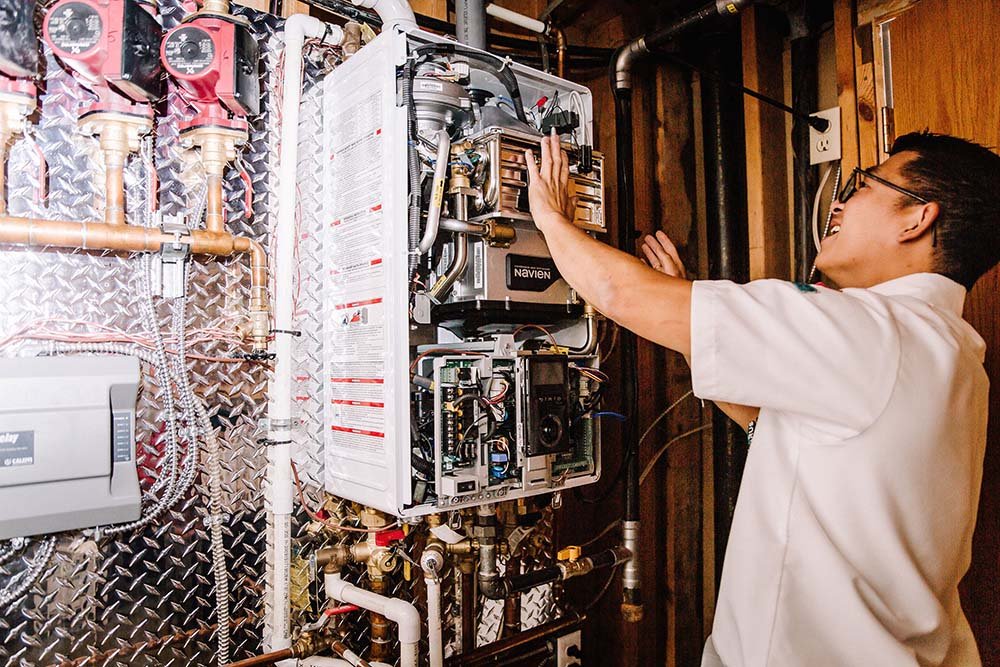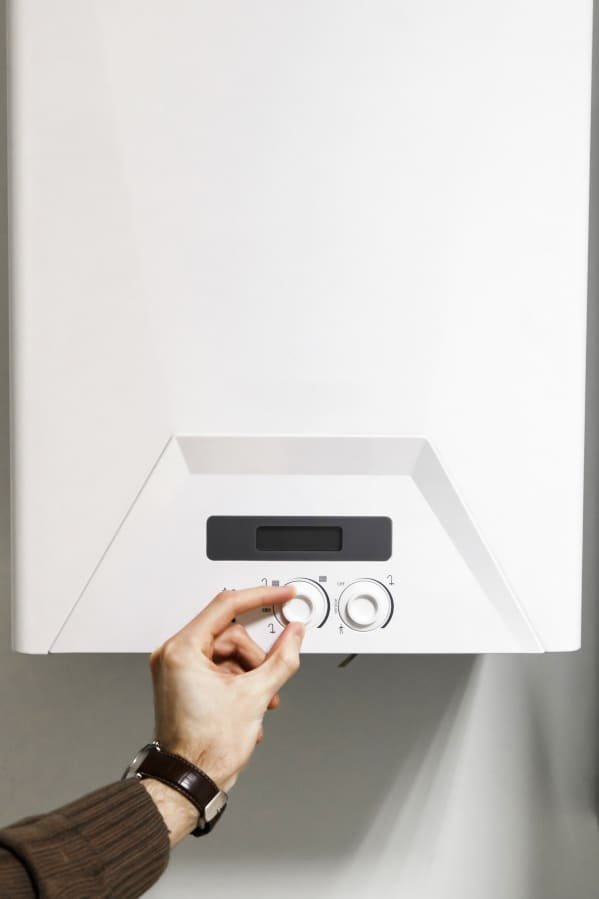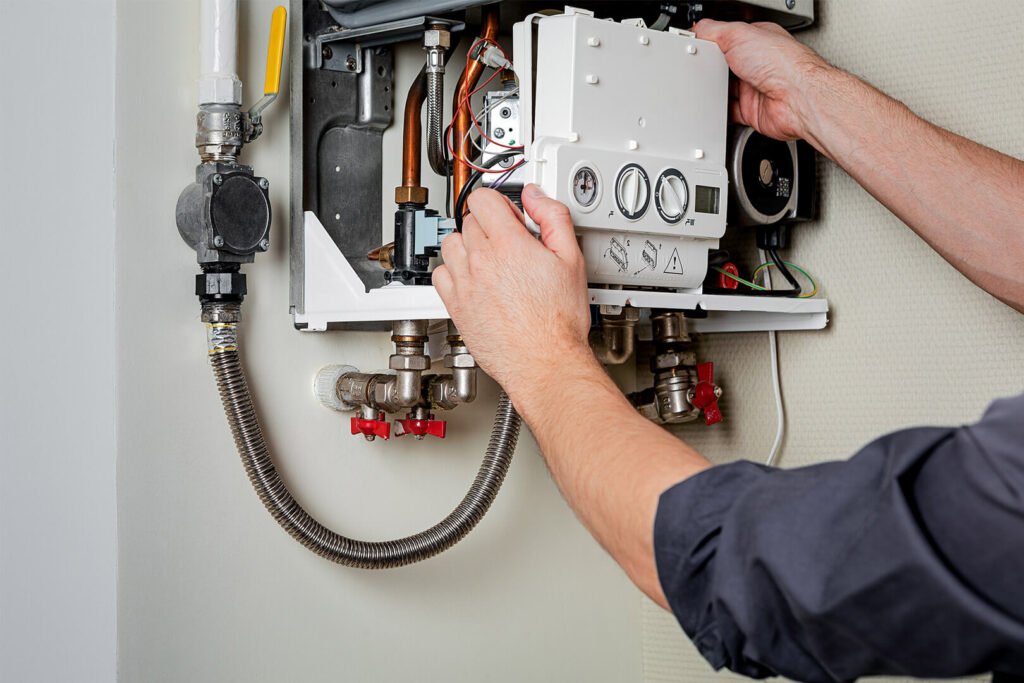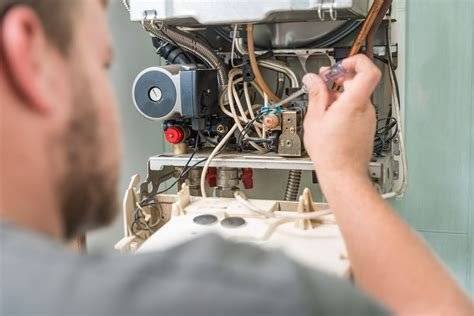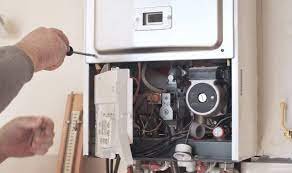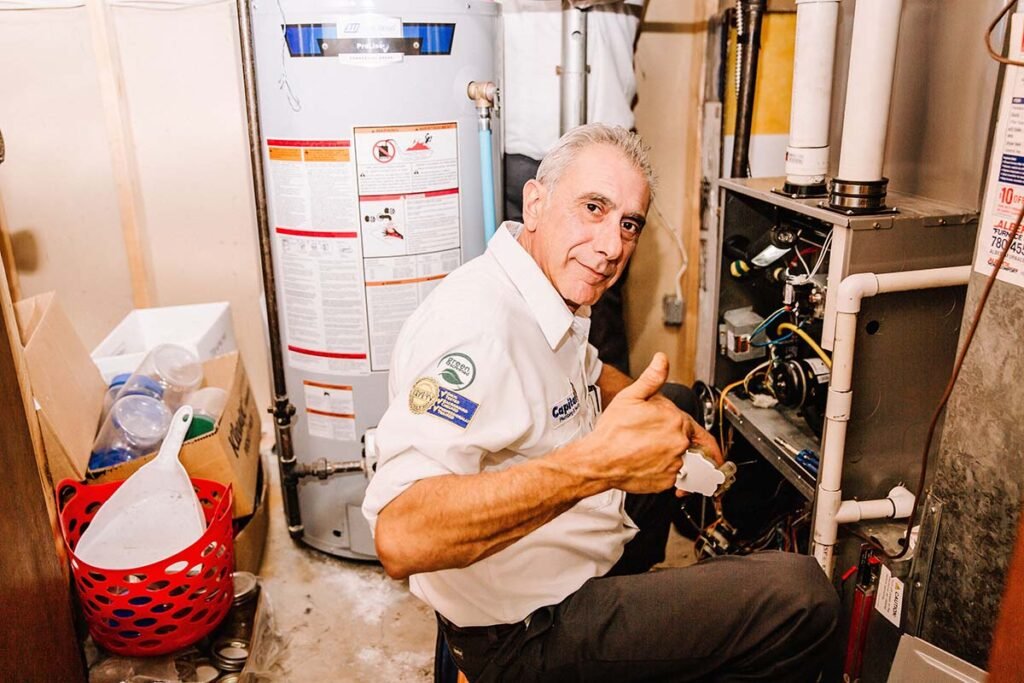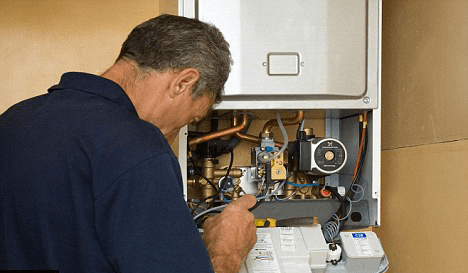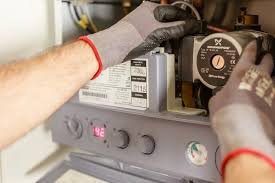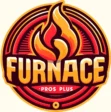Furnace Installation Stony Plain - Your Trusted Heating Professionals
Furnace Pros Plus is your dependable partner for all your heating needs. With years of experience, we specialize in providing first-class heating solutions to keep your home warm and comfy. Our group of skilled technicians commit themselves to offering professional heating system setup, upkeep, and repair work services. We understand the significance of a correctly functioning heating system, particularly throughout the chillier months. We focus on performance, price, and consumer complete satisfaction in every project (huge or little). Whether you need a new heating system, a regular check-up, or emergency repairs, depend on Furnace Pros Plus for reliable and efficient heating services that guarantee peace of mind and convenience.
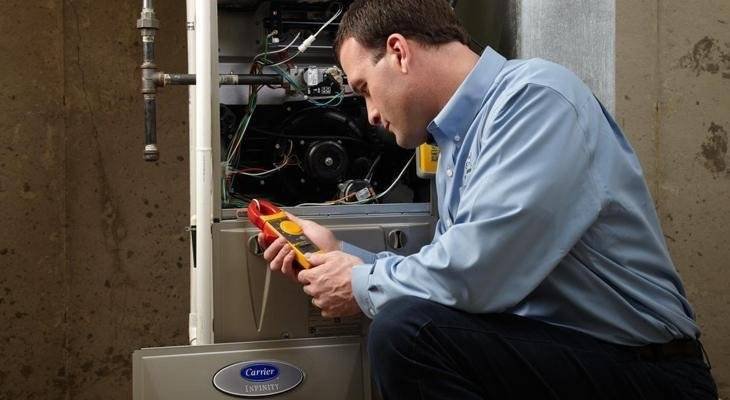
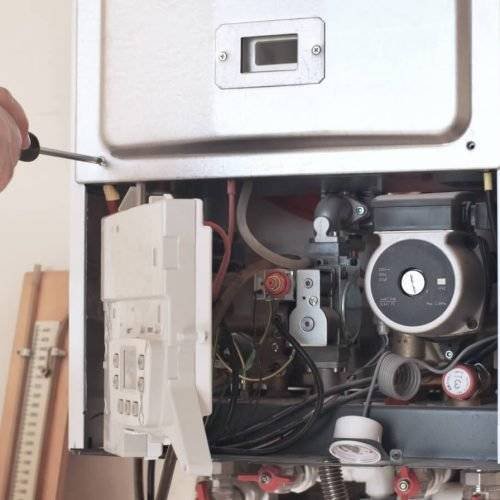
Who Are We?
Residential Furnace Installations & Repairs
Furnace Pros Plus stands apart as the leading heating system setup and repair work company in Stony Plain, due to its dedication to quality, consumer complete satisfaction, and knowledge. This reputable heating contractor has built a strong credibility by consistently providing dependable and efficient heating system solutions customized to the distinct needs of each consumer.
One of the key elements that set Furnace Pros Plus apart is its group of extremely skilled and licensed technicians. Each professional brings a wealth of experience and is carefully trained to deal with a wide variety of heating system systems, from older designs to the most recent innovations. This ensures that no matter the type or intricacy of the heating system, Furnace Pros Plus has the knowledge to successfully diagnose and fix any problems.
Additionally, Furnace Pros Plus places a high top priority on customer service. The company understands that heating system issues can be disruptive, particularly throughout the extreme Stony Plain winters. As a result, they provide timely and dependable service, making sure that their technicians are readily available 24/7 to deal with any emergencies. This responsiveness lessens downtime and ensures that homes and companies are kept warm and comfy without considerable hold-ups.
Furnace Pros Plus also stands out for its dedication to using only premium parts and products. By partnering with leading manufacturers, the company ensures that every setup, repair work, or upkeep job satisfies the greatest standards of sturdiness and performance. This not only improves the durability of the heaters but also improves their performance and energy performance, which can result in considerable expense savings for customers in time.
The company’s commitment to openness and reasonable prices further improves its credibility. Furnace Pros Plus supplies detailed, in advance quotes without covert charges, making sure that customers understand what they are spending for and can make educated choices about their heating system needs.
Finally, Furnace Pros Plus contributes to the regional community by staying environmentally conscious and promoting energy-efficient solutions. By advising customers on the best practices and products for lowering energy usage, they assist Stony Plain homeowners and companies lessen their ecological impact and take pleasure in better air quality.
All these elements combine to make Furnace Pros Plus the premier choice for anybody looking for reliable and premium heating system setup and repair work services in Stony Plain, Alberta
How can we help you?
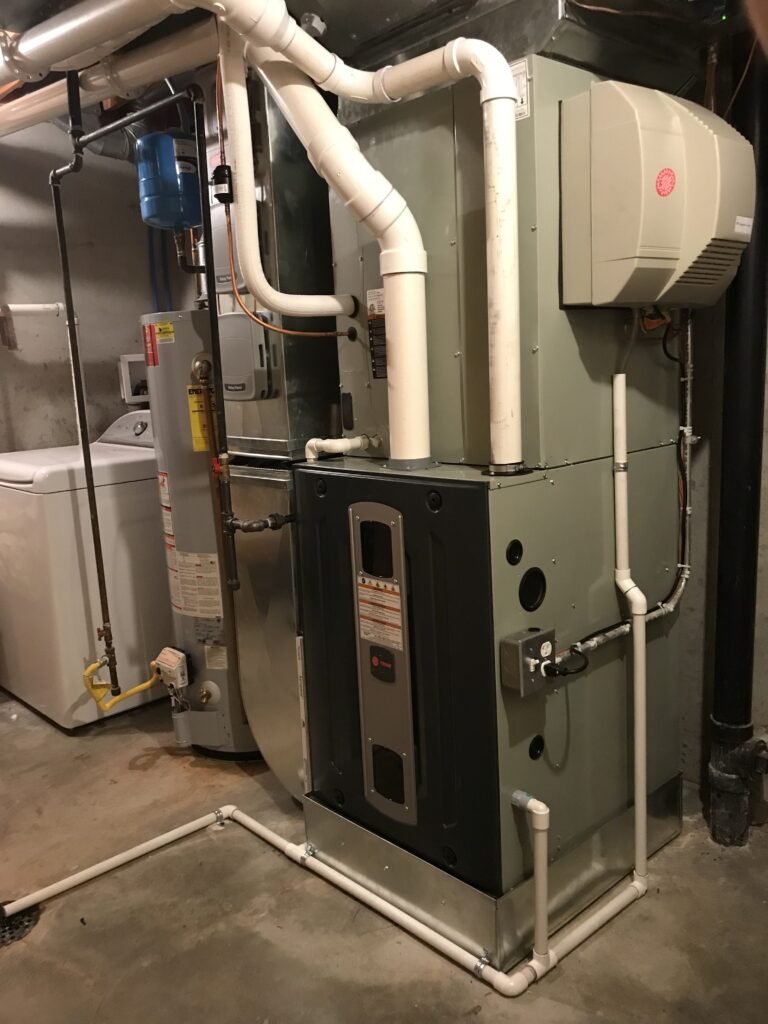
Understanding the Cost of Installing a New Furnace
Introduction
A working heating system is important when it concerns keeping a comfy and warm home throughout the chillier months. However, there comes a time when installing a new heating system is inescapable.
Aqua Comfort Experts stand apart as Edmonton’s leading hot water tank solutions provider.
Understanding the costs associated with this process is essential for homeowners to strategy and budget appropriately. This detailed guide explores the various elements influencing the expense of installing a new heating system.
Aspects Influencing Heating System Installation Costs
Type of Heater:
- Gas Furnaces: Popular for their performance, they typically cost more in advance however provide lower operating expense.
- Electric Furnaces: They are less expensive than gas heaters. However, electric designs tend to have higher functional costs due to electricity costs.
- Oil Heating systems: These are less typical and can be more costly due to the expense of oil.
Heating System Size and Capacity
- Square Footage: The size of your home directly impacts the capacity required for the heating system.
- BTU Ranking: Higher BTU rankings correspond to more effective heaters, which can increase the expense.
Performance Scores
Annual Fuel Usage Performance (AFUE):
Higher AFUE rankings suggest better performance however also come with a greater cost.
Brand and Quality
Top-tier brand names often command higher costs due to their credibility for quality and durability.
Installation Intricacy
- Existing System: Updating from an old system may require extra work and expense.
- Ductwork: The condition and design of existing ductwork can impact setup intricacy.
- Availability: Challenging access to the setup website can increase labour costs.
Labour Costs
Labour costs vary by region. In addition, the intricacy of the setup can influence labour costs.
Extra Costs to Think About
- Permits: Some localities require permits for heating system setup.
- Inspections: City laws may require post-installation assessments for safety compliance.
- Thermostats: Updating to a clever thermostat can sustain extra costs.
Typical Cost of Heating System Replacement
While costs can vary extensively based upon the elements discussed above, here are some typical expense varieties for heating system setup:
- Gas Heating systems: $2,000 to $5,000.
- Electric Furnaces: $1,000 to $2,500.
- Oil Heating systems: $2,500 to $6,000.
These are rough price quotes and can vary based upon particular home requirements.
Cost-Saving Tips.
Research study and Compare.
Obtain numerous quotes from different professionals to guarantee competitive prices.
Seek Rebates and Incentives.
Try to find energy performance rebates used by energy companies or federal government programs.
Think About Long-Term Cost Savings.
Purchasing a more efficient heating system can lower energy costs in time.
Conclusion
Setting up a new heating system is a considerable investment, and comprehending the costs included is important for any property owner. By thinking about the kind of heating system, setup intricacy, labour costs, and extra expenses, homeowners can better prepare for this needed upgrade. Remember to seek numerous quotes, explore readily available rebates, and think about long-term energy cost savings when choosing.
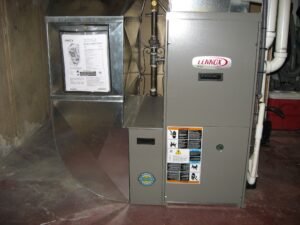
The Right Size Heating System for Your Home: A Comprehensive Overview
Introduction
Selecting the best size heating system for your home is essential for making sure efficient heating and convenience throughout the chillier months. A furnace that’s too little won’t keep your house warm, while one that’s too big can trigger unneeded energy usage and unequal heating. This guide will assist you determine the perfect heating system size for your home.
Understanding Heating System Sizing: BTU and Performance
We determine the size of a heating system in British Thermal Units (BTU). One BTU is the energy required to raise the temperature of one pound of water by one degree Fahrenheit. When choosing a heating system, 2 key elements play a role: the BTU score, showing the heating system’s heating capacity, and its performance score, measured in Annual Fuel Usage Performance (AFUE).
Computing Your Home’s Heating Requirements
You must determine your home’s heating needs to determine the appropriate heating system size. The estimation thinks about elements like square video footage, climate zone, insulation quality, window type, and house design. Usually, you need approximately 30-60 BTUs per square foot. However, this varies based upon your home’s particular attributes.
Climate Zone and Its Effect On Heating System Size
Your geographic location considerably influences the heating system size needed. Houses in chillier areas, such as Stony Plain, require more BTUs per square foot than those in milder climates. Seek advice from a heating expert for particular suggestions.
The Role of Home Insulation in Heating System Sizing
Excellent insulation lowers the amount of heat loss, indicating you can go with a smaller sized heating system. Examine your home’s insulation in the walls, attic, and windows. Updating insulation can be a cost-effective way to lower heating needs.
Considerations for Different Kinds Of Furnaces
There are various types of heaters, like gas, electric, and oil. Each type has distinct sizing considerations. Gas heaters are common and efficient, electric heaters are more simple and much safer however often more costly to operate, and professionals install oil heaters where gas isn’t readily available.
Value of Expert Heating And Cooling Evaluation
An expert a/c assessment is indispensable. Service technicians think about all variables, consisting of ductwork and home design, to suggest the ideal heating system size. They can perform a Manual J estimation, the market standard for figuring out heating and cooling loads.
Energy Performance and Cost-Effectiveness
Selecting a heating system with a high AFUE score is essential for energy performance and expense savings. Modern heaters have AFUE rankings in between 80% and 98%, showing the portion of fuel converted into heating. While high-efficiency heaters are more costly in advance, they can result in considerable cost savings in the long run.
Addressing Typical Misconceptions About Heating System Sizing
A common mistaken belief is that a larger heating system is always better. However, a large heating system can result in brief biking, where the heating system regularly turns on and off, lowering performance and life expectancy. On the other hand, an undersized heating system has a hard time to warm your home properly.
Long-Term Advantages of the Right-Sized Heater
Picking the right-sized heating system has long-term advantages, consisting of constant convenience, lower energy costs, lowered carbon footprint, and fewer upkeep problems. It’s a balance in between in advance costs and long-term cost savings.
Conclusion: Making an Educated Choice
Selecting the best size heating system is a decision that impacts your home’s convenience and energy performance for years to come. By comprehending the basics of heating system sizing and seeking professional assistance, you can make an educated decision that ensures ideal heating for your home.
Remember, the key to an efficient and comfy home lies in choosing the best heating system and regular upkeep and thinking about other elements like insulation and climate. With this detailed guide, you are fully equipped to pick the best heating system for your home, offering heat and convenience for lots of winters.

Replace vs Repair Heating System: A Exhaustive Overview
Introduction
Deciding whether to change or fix your heating system is a considerable decision for any property owner. The choice impacts your instant convenience and safety and has long-term monetary implications. This detailed guide will explore various aspects to think about, helping you make a notified decision.
Understanding Your Heater
Life expectancy and Types
Heating systems typically have a life-span of 15-20 years. The two primary types are gas and electric, each with different upkeep and functional costs.
Indications of Problems
Typical indications that your heating system may need attention consist of unusual sounds, inconsistent heating, and increased energy costs.
When to Think About Repairing Your Heating System
Repair work is often the best choice for small problems or heaters that are reasonably brand-new and still under guarantee.
Cost-Effectiveness
Repairing can be more economical for small problems. However, regular repairs may show a deeper issue.
Ecological Effect
Repair work often have a lower ecological impact than changing the entire system.
When Replacement is the Very Best Option
You must think about replacement if your heating system is near the end of its life expectancy, repairs are becoming increasingly costly, or if it could be more energy efficient.
Long-lasting Cost Cost Savings
While the preliminary expense is higher, a new heating system can be more energy-efficient, saving you cash on energy costs.
Technological Advancements
More recent designs come with sophisticated innovation, such as wise thermostats, which provide better temperature level control and performance.
Weighing Your Choices
Cost Analysis
Compare the expense of repairs in time versus the one-time expense of a new heating system.
Energy Performance
Examine how your existing heating system’s performance is affecting your energy costs.
Home Value
Think about how a new heating system may increase the worth of your home, particularly if you prepare to offer in the future.
Professional Guidance
Looking For Expert Opinion
Speak with HVAC professionals to evaluate the state of your existing heating system and get price quotes for repair work and replacement.
Value of Regular Upkeep
Regular upkeep can extend the life of your heating system, whether you choose to fix or change it.
Conclusion
In conclusion, choosing to fix or change your heating system depends on various elements, consisting of age, condition, expense, and energy performance. By thinking about these elements and seeking professional suggestions, you can make a decision that ensures convenience, safety, and monetary vigilance for your home.
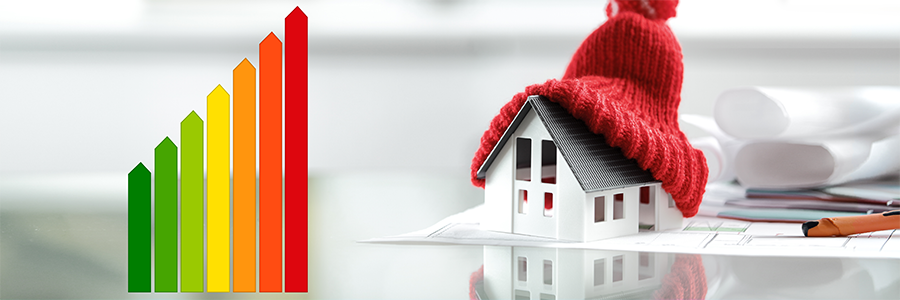
What Season is the Cheapest to Change Your Heating System?
Will a Modern Energy-Efficient Heating System Lower Your Home Insurance?
Introduction
Home upkeep can be a considerable investment, particularly when it involves essential systems like heating. One of the most significant costs homeowners deal with is changing their heating system. However, timing this replacement can result in considerable cost savings. This article explores the best season to change your heating system, thinking about cost-effectiveness and functionality.
Understanding Heating System Replacements
The Requirement for Replacement
Before delving into timing, it’s essential to understand why and when you must change your heating system. Typical indicators consist of regular repairs, heating inefficiency, and the system’s age (usually beyond 15-20 years). Changing an outdated or malfunctioning heating system improves heating performance and ensures safety and convenience throughout chillier months.
Aspects Influencing Heating System Prices
Several elements impact heating system costs, consisting of the kind of heating system, brand name, capacity, and the intricacy of setup. Seasonal demand is another considerable aspect, often overlooked, yet it plays an important function in figuring out the expense.
Best Time for Replacement: Off-Season
Why Select Off-Season?
The off-season, mostly spring and early fall, is generally the most affordable to change a heating system. The demand for heating systems is lower throughout these periods than throughout the peak winter months. Lower demand often results in more competitive prices from manufacturers and installers.
Benefits of Off-Season Replacement
- Lower Costs: Reduced demand can result in discount rates and more consumer negotiating power.
- Schedule of Technicians: a/c technicians are less busy throughout these times, making sure more versatile scheduling and quicker setup.
- Sufficient Time for Research study: The off-season gives homeowners adequate time to research study different heating system designs and options without the pressure of instant requirement.
Planning Ahead
Using the off-season needs preparation. Anticipate the requirement for replacement and schedule it when the demand is low. This insight saves cash and avoids the trouble of a heating system breaking down in the middle of winter season.
Winter season: The Peak Season
Challenges of Winter Season Replacement
- Higher Prices: The demand for heating system setup and repair work peaks throughout winter season, leading to higher costs.
- Hectic Schedules: Discovering a specialist might be more tough, and you may have to wait longer for a visit.
- Emergency Replacements: If your heating system breaks down in winter season, you may have to go with an immediate replacement, which leaves little space for expense contrast or settlement.
Other Considerations
Energy Performance and Rebates
Purchasing energy-efficient designs might be more costly in advance however can result in long-term cost savings. Likewise, keep an eye out for rebates and tax credits used for energy-efficient home improvements.
Value of Regular Upkeep
Regular upkeep can extend the life of your heating system, delaying the requirement for replacement. It’s an important element of home care that you must pay attention to.
Conclusion
Timing your heating system replacement can result in considerable cost savings. The off-season, particularly spring and early fall, is typically the most economical period for this investment. Planning, thinking about energy performance, and keeping your existing heating system can optimize expenses and guarantee a warm, comfy home.
Introduction
Property owners often contemplate whether updating their home devices and systems can result in cost savings on their home insurance coverage premiums. One typical concern is whether installing a new heating system reduces home insurance coverage costs. This article looks into how a new heating system setup may affect your home insurance coverage, using insights into insurance plan, threat management, and possible cost savings.
Understanding Home Insurance Premiums
Before diving into the specifics of heaters and insurance coverage, it’s essential to understand what elements influence home insurance coverage premiums. Insurer evaluate various elements, consisting of:
- Home Age and Condition: Insurance Representatives see more recent homes with updated systems as lower risks.
- Place: Geographical location and regional climate can considerably impact insurance coverage rates.
- Safety Features: The existence of alarms, smoke alarm, and other safety devices can lower premiums.
The Effect of a New Heating System on Home Insurance
Setting up a new heating system in your home can have several implications for your home insurance coverage:
- Reduced Risk of Fire and Gas Leakages: Modern heaters with sophisticated safety functions lessen risks like fire or gas leakages. This threat decrease can be favourable in the eyes of insurance coverage companies.
- Improved Energy Performance: Newer heaters are often more energy-efficient, leading to lower energy costs and a lowered ecological footprint, indirectly impacting insurance coverage considerations.
- Boosted Home Value: Updating to a new heating system can increase your home’s market price, which may impact the coverage you need.
Prospective Insurance Discounts
Some insurance provider provide discount rates for home improvements that lower threat. These may consist of:
- Protective Device Discounts: You may receive a discount if your brand-new heating system consists of sophisticated safety functions.
- Green Home Discounts: Some insurance companies supply special discount rates for installing energy-efficient home appliances.
Documents and Appraisal
To leverage a new heating system setup for insurance coverage advantages, think about the following:
- Professional Installation: Make sure a licensed professional installs your heating system, which can be a requirement for insurance coverage advantages.
- Keep Records: Keep all receipts and documents for the heating system purchase and setup.
- Notify Your Insurance Company: Inform your insurance provider about the upgrade. They may require an examination or extra documents.
Considerations Before Updating
While a new heating system can provide advantages, think about the following:
- Cost vs. Benefit Analysis: Evaluate if the long-term cost savings on insurance coverage and energy costs validate the preliminary expense of a new heating system.
- Insurance Plan Evaluation: Speak to your insurance coverage agent to understand how a new heating system may specifically affect your policy.
Conclusion
Updating to a new heating system can lower your home insurance coverage premiums by lowering threat and enhancing your home’s safety and performance. However, the impact varies based upon private insurance plan and the particular functions of the heating system. It’s a good idea to seek advice from your insurance coverage company to understand the complete advantages and implications of a new heating system setup.
Frequently asked questions
Q: Just how much can I minimize my home insurance coverage by installing a new heating system?
A: Cost savings vary based upon the insurance coverage company and the particular functions of the brand-new heating system. Speak with your insurance coverage agent for detailed info.
Q: Are there any particular types of heaters that are more favourable for insurance coverage discount rates?
A: Heating systems with sophisticated safety functions, high energy performance rankings, and those that satisfy particular ecological standards are often more favourable.
How to Prepare for a Heater Installation
Setting up a new heating system in your home is a considerable investment and an important upgrade to your home. It improves the convenience of your home and improves energy performance. Correct setup preparation is essential to guarantee the setup process is smooth and stress-free. This article will guide you through the needed steps to prepare for a heating system setup.
Understanding Your Heating Requirements
Evaluating Your Area: The initial step is to evaluate the size of your space and understand the heating requirements. A too-large or too-small heating system for your home can result in inefficiency and higher energy costs. Consulting with a heating professional to determine the best heating system size is essential.
Selecting the Right Heating System: There are various heaters, consisting of gas, electric, and oil. Each has benefits and drawbacks; the choice depends on your location, budget, and personal choice. Research study and seek advice from experts to make a notified decision.
Pre-Installation Preparation
Picking a Certified Installer: We can not overemphasize the significance of selecting a certified and experienced installer. Try to find professionals with excellent evaluations and correct certification. They will guarantee a proper setup and guide you through the process.
Clearing the Area: Make sure the location where you prepare to install the heating system is clear of any mess. A tidy location supplies easy access to the setup group and accelerate the process. Remove any valuable or fragile products from the vicinity to prevent unintentional damage.
Preparing for Downtime: Depending on the intricacy of the setup, your heating system may be down for a few hours to a day. Plan appropriately, particularly if the setup is throughout chillier months.
During Installation
Access to Your Home: Make sure the installers have easy access to your home, which includes making sure that parking is readily available and a clear path to the heating system location.
Communication: Stay readily available to respond to any concerns the installers may have. Clear communication can assist fix any problems quickly and guarantee your setup goes as prepared.
After Installation Checks
Examine the Setup: Once the setup is complete, examine the deal with the installer. Make sure that the setup is complete which the location is clean.
Understanding the System: Have the installer explain the performance of the brand-new heating system, consisting of how to alter filters and the basic troubleshooting steps.
Service warranty and Documents: Ensure you receive all needed documents, consisting of guarantee info and running manuals. Keep these documents in a safe place for future referral.
Conclusion
Preparing for a heating system setup involves comprehending your heating needs, choosing the best heating system, and selecting a certified installer. By following these steps, you can guarantee a hassle-free setup process and take pleasure in the convenience and performance of your brand-new heating system for years to come. Remember, a little preparation goes a long way in making sure a smooth and successful heating system setup.
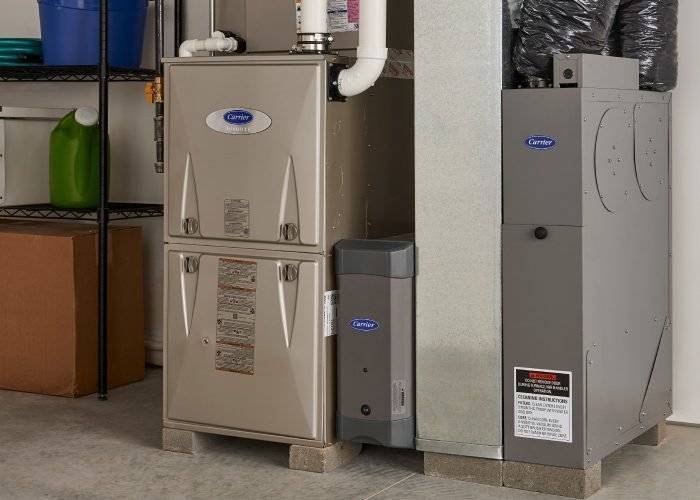
Our Work
